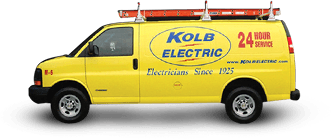Summer’s coming, and if the last few years have been any indication, we could be looking at some serious storms heading our way. Now is a good time to go over a few tips on what to do if the power goes out! Power outages can be more than inconvenient—if you don’t know how to respond, they could get dangerous!
What to Do When the Power Goes Out
Never use generators, pressure washers, grills, or any other gas-powered appliances indoors—even in the basement or garage. These appliances can generate carbon monoxide, which can be deadly even in small doses.
Keep refrigerator and freezer doors closed until the power goes back on. If the power is out for less than four hours, all of your food should be safe. Click here to view the USDA’s guidelines for what to do if the refrigerator is out longer than four hours.
Water treatment facilities are generally some of the first places to get power back. Even so, avoid drinking tap water until you have been assured by local authorities that it is safe to do so.
Wear loose-fitting, light clothing, keep hydrated, and do what you can to stay cool in the summer. Heat stroke can happen to anyone, especially young children and the elderly, and can cause death or permanent disability if not treated properly.
Stay far away from downed power lines, even if you don’t think they are live. If you are in your car and power lines fall on your vehicle, remain in the car and call 911.
Call the power company and let them know your power is out—even if you think all your neighbors have already called. The power company uses call data to determine which neighborhoods to prioritize when working to get the power back on.
How Pepco Gets the Power Back On
Pepco, one of the largest energy companies in the DC area, has a detailed summary of their response to power outages in the area. In summary:
First, they collect information from homeowners and business owners to determine the extent of the power outage. Using this data, they determine which areas are down so they can pinpoint the locations where they need to send crew members.
Once they have arrived on scene, they eliminate public safety hazards like downed power lines while working to restore power to public health and safety facilities.
Next, they prioritize customers when determining how to restore power: public health facilities like hospitals, police and fire departments, and water treatment plants come first, followed by areas of high population densities. Once they restore power to these “vital” areas, they work their way down secondary distributions that serve neighborhoods, commercial areas, and subdivisions. Finally, they turn their attention to individual homes and businesses that have not yet been reconnected.
Knowing how to react following a power outage can lessen the inconvenience and keep you safe. For more tips or for electrical service in Maryland, Virginia, or Washington, DC, call Kolb Electric!









